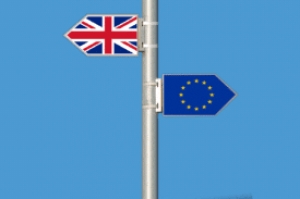


(Posted on 09/06/21)
The UK’s Q1 2021 port freight statistics from the Department for Transport released today provide further insight into what was a tough start to the year for the economy, with a national lockdown enduring for the full quarter and UK and EU businesses getting to grips with Brexit.
When comparing January to March 2021 with January to March 2020 through UK major ports, total freight tonnage decreased by 9% to 103.9 million tonnes; with inward units facing a more severe fall of 17%, compared to an 8% fall in outward units. Alternatively, unitised traffic fell by 13% to 4.2 million units, with inward units being hardest hit with a 17% fall, compared to outward units decreasing by 8%.
Commenting, Phoebe Warneford-Thomson, Policy Manager and Economic Analyst, at the British Ports Association said, “This is the first time the industry as a whole has been able to see the aggregate impact of Brexit on port volumes. Due to the timing of the Brexit deadline falling at the same time as the third national lockdown, it is challenging to truly separate their impact and draw firm conclusions on which had a more harmful impact on trade in the first quarter.
However, when looking back to port freight data from Q2 2020, when the full extent of the UK's first national lockdown was felt, the data painted a far more severe picture than we've seen today - with an 18% decline in freight tonnage and a 44% decline in unitised traffic, compared to the same period. By now, we have a good understanding of the harms to the economy caused by lockdowns, and therefore port freight, so today's data can be at least be partly attributed to the impact of COVID-19.
This said, we know from other data sources such as the ONS Trade Report, that January saw a fall in goods imports and exports that was the largest month-on-month drop since records began, which was ultimately driven by the Brexit deadline at the very end of 2020. Furthermore, today's figures are consistent with other reports from trade statistics that suggest that businesses stockpiled ahead of the Brexit deadline in Q4, which led to a quieter first quarter than usual. This also indicates why inward unitised freight faced the greatest fall than any other category, as there were most concerns about RoRo traffic ahead of the end of the transition period.
Of course, full import controls will not come into force until January 2022, so the full extent of the impact of Brexit on trade - temporary or permanent - has not yet been realised.”
Euroports has announced the renewal of the concession for Terminal Rinfuse Venezia (TRV) at Porto Marghera... Read more
Contributing to the commitment of achieving net zero emissions by 2050, the Panama Canal authority has... Read more
The Saguenay Port Authority in Quebec has ordered a Konecranes Gottwald ESP.6B Mobile Harbor Crane for... Read more
North Sea Port Supervisory Body has appointed Cas König as the port authority's new CEO. Kö... Read more
After 19 years at the helm of the Port of Trois-Rivières and a career rich in major projects,... Read more
Abu Dhabi based AD Ports Group, an enabler of integrated trade, transport and logistics solutions, has... Read more
The Port of Rotterdam and Port of Antwerp-Bruges have welcomed the Clean Industrial Deal, through which... Read more
The Canadian Port of Trois-Rivières is delighted to have received major funding of $87.1 million... Read more
Belgian logistics giant Katoen Natie has ordered four all-electric Konecranes Gottwald Mobile Harbor... Read more
AD Ports Group, Abu Dhabi based enabler of integrated trade, transport and logistics solutions, has... Read more